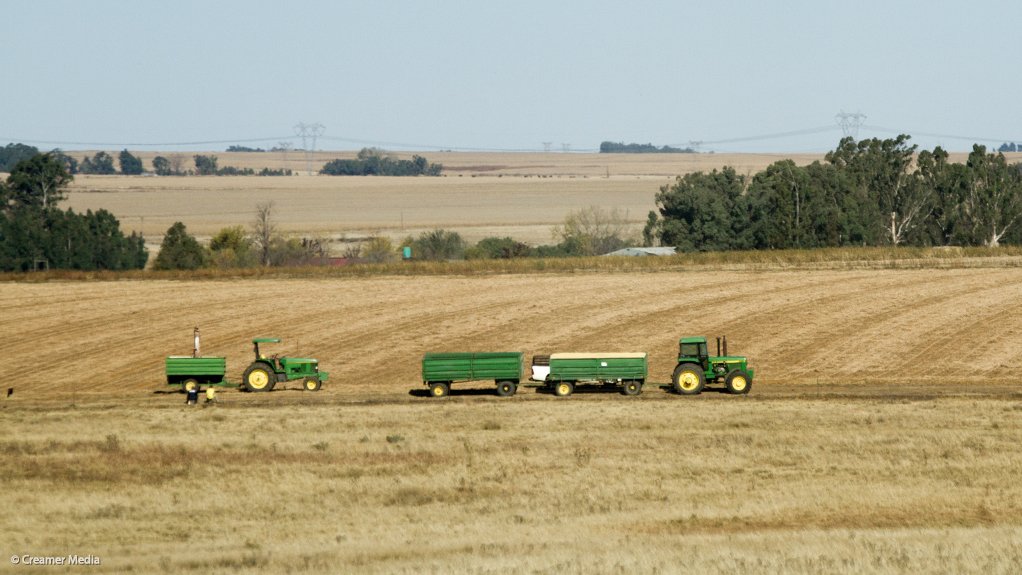Herbicide ban will cost SA farming billions – expert
The farming and the agrochemical sectors stand to lose billions of rands if glyphosphate is prohibited, after a World Health Organisation finding of possible carcinogenicity.
An industry expert at CropLife South Africa, Dr Gerhard Verdoorn, told Fin24 that the loss of glyphosphate as a herbicide would be a serious knock for the agricultural sector.
“If glyphosphate is lost as a herbicide the world had better prepare itself for massive crop losses and subsequent food losses as a result of weed invasions,” he said.
Glyphosphate is the “largest” (by volume) herbicide used in SA as in other parts of the world. It is used for general weed control before crops are planted to clear planting areas. It is a non-selective systemic herbicide that is applied to plant parts above the soil.
Verdoorn explains that the plant takes it up in its system and it prevents the synthesis of certain aromatic amino acids that are essential for biosynthesis of proteins. Plants wilt after about four days and subsequently die off.
Carcinogenicity
In its recent evaluation in March 2015, the International Agency for Research on Cancer (IARC), as the specialised cancer agency of the World Health Organisation (WHO), came to the conclusion that there is limited evidence of possible carcinogenicity associated with glyphosphate, which could result in non-Hodgkin lymphoma in humans.
“The evidence in humans is from studies of exposures, mostly agricultural, in the USA, Canada and Sweden published since 2001. In addition, there is convincing evidence that glyphosphate also can cause cancer in laboratory animals,” IARC said in its evaluation.
“Glyphosphate also caused DNA and chromosomal damage in human cells, although it gave negative results in tests using bacteria.”
According to Verdoorn the WHO findings were based on inadequate studies, incomplete data sets and an ignorance of thousands of other studies over decades that have never been able to demonstrate that glyphosphate poses a cancer risk.
“I personally find this research highly controversial and do not trust it all. As far as I am concerned there isn’t a single case of human cancer ever recorded in the world that is linked to glyphosphate - it is very easy to prove a hypothesis in lab conditions instead of doing proper research in which a hypothesis is formulated and tested in field conditions,” he said.
Review process
Chief Director of stakeholder relations and communications for the Department of Agriculture, Forestry, and Fisheries, Makenosi Maroo, told Fin24 that the government is in discussions with the agrochemical industry and that talks are ongoing.
“We have no evidence of misuse of glyphosphate by the agrochemicals industry in South Africa. As part of the review process that we intend to conduct, we will seek inputs from interested parties with respect to misuse and adverse effect of glyphosphate."
According to Maroo the herbicide could be banned “under circumstances where the risk associated with the use of glyphosphate cannot be managed”.
In response to a question on when the public and industry will have a final position from government on the findings, Maroo said “after the review process is complete. At this point we cannot determine how long the review processes will take”.
Label instructions
According to Verdoorn CropLife SA always advocates that pesticide label instructions are followed to the letter as this ensures effective pest management and a minimum if any impact on the environment and human health.
“I firmly believe we have no issues with glyphosphate apart from when it is used off-label, meaning people not abiding by label instructions. Wrongful aerial application can damage surrounding crops if there is drift and that is currently our main issue with glyphosphate.
“We don’t have evidence of impact on animal life or human health although I receive calls from the public claiming that pets get poisoned after they applied glyphosphate in the garden: such incidents strongly point to diseases such as biliary and not glyphosphate impact at all,” he said.
Comments
Press Office
Announcements
What's On
Subscribe to improve your user experience...
Option 1 (equivalent of R125 a month):
Receive a weekly copy of Creamer Media's Engineering News & Mining Weekly magazine
(print copy for those in South Africa and e-magazine for those outside of South Africa)
Receive daily email newsletters
Access to full search results
Access archive of magazine back copies
Access to Projects in Progress
Access to ONE Research Report of your choice in PDF format
Option 2 (equivalent of R375 a month):
All benefits from Option 1
PLUS
Access to Creamer Media's Research Channel Africa for ALL Research Reports, in PDF format, on various industrial and mining sectors
including Electricity; Water; Energy Transition; Hydrogen; Roads, Rail and Ports; Coal; Gold; Platinum; Battery Metals; etc.
Already a subscriber?
Forgotten your password?
Receive weekly copy of Creamer Media's Engineering News & Mining Weekly magazine (print copy for those in South Africa and e-magazine for those outside of South Africa)
➕
Recieve daily email newsletters
➕
Access to full search results
➕
Access archive of magazine back copies
➕
Access to Projects in Progress
➕
Access to ONE Research Report of your choice in PDF format
RESEARCH CHANNEL AFRICA
R4500 (equivalent of R375 a month)
SUBSCRIBEAll benefits from Option 1
➕
Access to Creamer Media's Research Channel Africa for ALL Research Reports on various industrial and mining sectors, in PDF format, including on:
Electricity
➕
Water
➕
Energy Transition
➕
Hydrogen
➕
Roads, Rail and Ports
➕
Coal
➕
Gold
➕
Platinum
➕
Battery Metals
➕
etc.
Receive all benefits from Option 1 or Option 2 delivered to numerous people at your company
➕
Multiple User names and Passwords for simultaneous log-ins
➕
Intranet integration access to all in your organisation





















